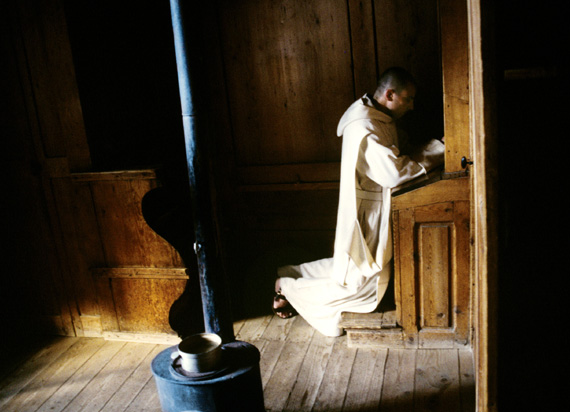Words have lost their music, or so I hear.
Perhaps they never had any, or so they say.
I will never forget a soldier to whom I said,
“What is the most beautiful song you have ever heard?”
He stopped his talk, and looked at me in quiet,
For a precious half-a-second, before he replied,
“It never occurred to me that music could
Be beautiful.” Perhaps that is the point.
Words retain the music, but we’ve lost the ear
Because we’ve lost (or chased away) our silence.
Our silence? As if it were ever ours.
The Word draws power from the Silence Before The World,
The only power that is, the power of Music
The Music which is the Lord and Giver of Life.
When we become quiet, we begin to do the same,
But neither the words, nor the quiet, are ours;
And certainly not the Music which Is between.
Rather, we are Theirs, or else we simply are not.
Our words are lego miniatures of the Word
And even in them we play with Holy Fire.
If there be not music, then let silence reign
Or at least the rehearsal, barely attended to
By children playing bagpipes, violins,
Trumpets, drums and flutes, in eager cacophony
Always sharp, or flat. Some are merely young.
Others are always trying to play the wrong tune,
Or play their favorite tune at the wrong time.
Some expect they will likely do well enough
When the time comes, so they distract themselves
With sidebar talk; And some just like the noise.
Dead men fill the air with the burden of talk
Zombie conversations about nothing
And I, being dead myself, am fully complicit
In filling and killing the silence with empty talk
Struggling to empty words of all their silence
Lest we find ourselves confronted by
The aweful reality of nothing to say.
So conversations deaden, bore and stultify,
Wilt the critical function and reconfirm
Me in my headlong flight from bright reality.
This is not the courage of the bulwark picnic
In the cancer ward; nor yet the Socratic libation
Poured out for the gods; nor even of shaking the hand
Of a pretty girl. This is only fear
Conspiring to (just-so-happen-to) look
Out the other window at that precise time
As we pass the camo jacket with the cardboard sign,
As if we fear that poverty might be contagious.
Of course it is, but what we do not see
Is that we are already infected, and quite terminal.
Against all this we raise our timeless chats
Over tea and toast around the kitchen table;
Amid beer and pipes of aromatic smoke
In the cool of the evening, when the ancient garden echoes
Softly in the mind, tingeing words with music
Older than fig leaves. Conversations reach
Backwards and forwards into the now and always.
Silence dives still deeper in the single point
Where darkness dwells in unapproachable light.
Humility alone can bring us to this place.
Humility requires, demands, the incarnation
Of ineffable word in flesh of mortal deed.
The scandal of the particular is never more
Strongly felt than when at last we turn
From words to music, in this specific act
Of encountering the Word in scribbled sharpie ink
On a cardboard sign; or in the aching void
Between the lines of empty zombie talk;
And offering bread, not bread alone but Word
Eternally uttered forth from the Mouth of God.





